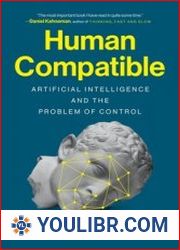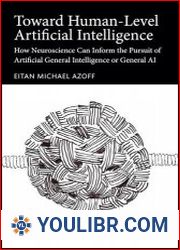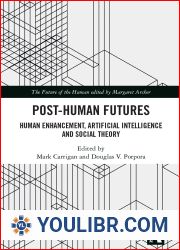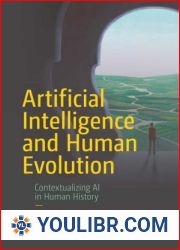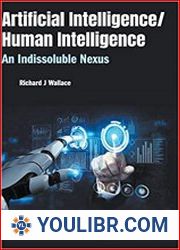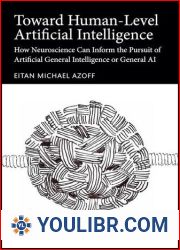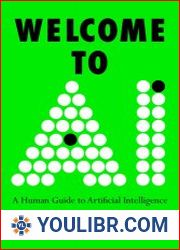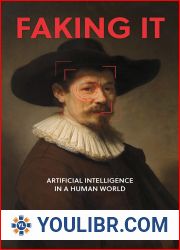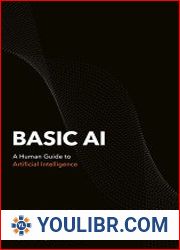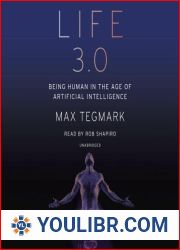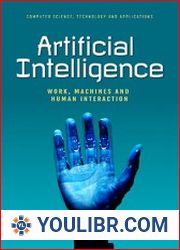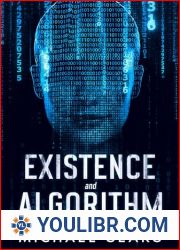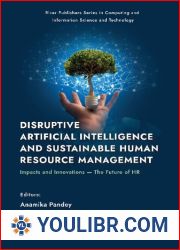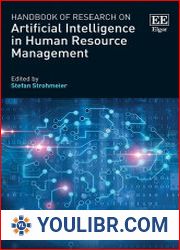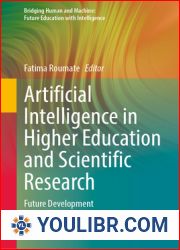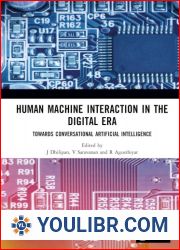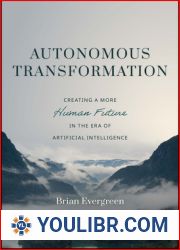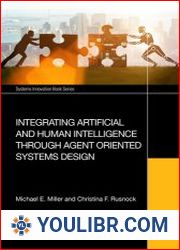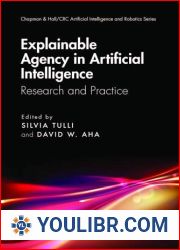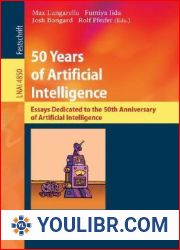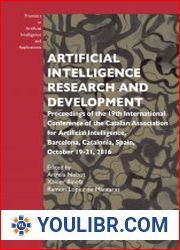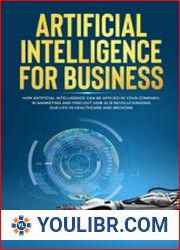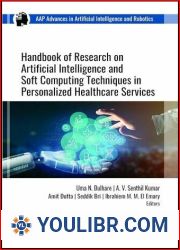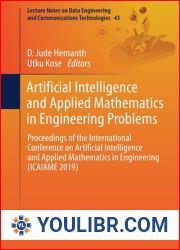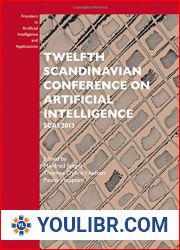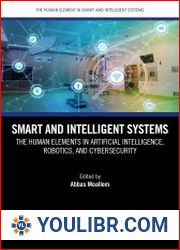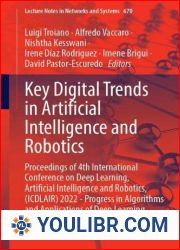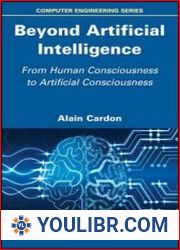
BOOKS - PROGRAMMING - Human Compatible Artificial Intelligence and the Problem of Con...

Human Compatible Artificial Intelligence and the Problem of Control
Author: Stuart Russell
Year: 2019
Format: EPUB
File size: 10.1 MB
Language: ENG

Year: 2019
Format: EPUB
File size: 10.1 MB
Language: ENG

Human Compatible Artificial Intelligence and the Problem of Control The book "Human Compatible Artificial Intelligence and the Problem of Control" explores the challenges of creating artificial intelligence that is compatible with human values and goals while maintaining control over its development and use. The author argues that the current approach to AI development is based on the assumption that humans will always be able to control the technology, but this approach is flawed and may lead to unintended consequences. Instead, the book proposes a new paradigm for understanding the evolution of technology and the role of humans in it. The book begins by examining the history of AI development and how it has evolved over time. It highlights the rapid progress made in recent years, particularly in areas such as machine learning and deep learning, which have enabled AI systems to perform tasks previously thought to be the exclusive domain of humans. However, this progress has also led to concerns about the potential risks associated with these advancements, including the loss of jobs, bias, and privacy issues. The author then delves into the concept of "control" and how it relates to AI development. They argue that control is not just about programming AI systems to do what we want but rather understanding how they work and why they make certain decisions.
Human Compatible Artificial Intelligence and the Problem of Control Книга «Human Compatible Artificial Intelligence and the Problem of Control» исследует проблемы создания искусственного интеллекта, совместимого с человеческими ценностями и целями при сохранении контроля над его разработкой и использованием. Автор утверждает, что нынешний подход к разработке ИИ основан на предположении, что люди всегда смогут контролировать технологию, однако такой подход ошибочен и может привести к непреднамеренным последствиям. Вместо этого в книге предлагается новая парадигма понимания эволюции технологий и роли в ней человека. Книга начинается с изучения истории развития ИИ и того, как он развивался с течением времени. Он подчеркивает быстрый прогресс, достигнутый в последние годы, особенно в таких областях, как машинное обучение и глубокое обучение, которые позволили системам ИИ выполнять задачи, которые ранее считались исключительной областью людей. Тем не менее, этот прогресс также привел к обеспокоенности по поводу потенциальных рисков, связанных с этими достижениями, включая потерю рабочих мест, предвзятость и проблемы конфиденциальности. Затем автор углубляется в понятие «контроль» и в то, как оно относится к разработке ИИ. Они утверждают, что контроль заключается не только в программировании систем ИИ, чтобы делать то, что мы хотим, но скорее в понимании того, как они работают и почему они принимают определенные решения.
L'Intelligence Artificielle et le Problème du Contrôle livre « L'Intelligence Artificielle et le Problème du Contrôle » explore les défis de la création d'une intelligence artificielle compatible avec les valeurs et les objectifs humains tout en conservant le contrôle de son développement et de son utilisation. L'auteur affirme que l'approche actuelle du développement de l'IA repose sur l'hypothèse que les gens seront toujours en mesure de contrôler la technologie, mais que cette approche est erronée et peut avoir des conséquences involontaires. Au lieu de cela, le livre propose un nouveau paradigme pour comprendre l'évolution de la technologie et le rôle de l'homme dans celle-ci. livre commence par une étude de l'histoire du développement de l'IA et de son évolution au fil du temps. Il souligne les progrès rapides réalisés au cours des dernières années, en particulier dans les domaines de l'apprentissage automatique et de l'apprentissage profond, qui ont permis aux systèmes d'IA d'accomplir des tâches qui étaient auparavant considérées comme un domaine exclusif de la population. Toutefois, ces progrès ont aussi suscité des préoccupations au sujet des risques potentiels associés à ces réalisations, notamment les pertes d'emplois, les préjugés et les problèmes de confidentialité. L'auteur approfondit ensuite la notion de « contrôle » et la façon dont elle se rapporte au développement de l'IA. Ils affirment que le contrôle ne consiste pas seulement à programmer des systèmes d'IA pour faire ce que nous voulons, mais plutôt à comprendre comment ils fonctionnent et pourquoi ils prennent certaines décisions.
Human Compatibility Artistical Intelligence and the Profem of Control Book «Human Compatibility Artistical Intelligence and the Profem of Control» esplora i problemi legati alla creazione di un'intelligenza artificiale compatibile con i valori e gli obiettivi umani, mantenendo il controllo dello sviluppo e dell'utilizzo. L'autore sostiene che l'approccio attuale allo sviluppo dell'IA si basa sul presupposto che le persone possano sempre controllare la tecnologia, ma che questo approccio è sbagliato e può avere conseguenze involontarie. Il libro propone invece un nuovo paradigma per comprendere l'evoluzione della tecnologia e il ruolo dell'uomo. Il libro inizia studiando la storia dello sviluppo dell'IA e come si è evoluto nel corso del tempo. Sottolinea i rapidi progressi compiuti negli ultimi anni, soprattutto in settori come l'apprendimento automatico e l'apprendimento approfondito, che hanno permesso ai sistemi di intelligenza artificiale di svolgere compiti che in passato erano considerati un'area esclusiva degli esseri umani. Tuttavia, questi progressi hanno portato anche a preoccupazioni per i potenziali rischi associati a questi progressi, tra cui la perdita di posti di lavoro, pregiudizi e problemi di privacy. Poi l'autore approfondisce il concetto dì controllo "e il modo in cui si riferisce allo sviluppo dell'IA. Sostengono che il controllo non è solo programmare i sistemi di IA per fare ciò che vogliamo, ma piuttosto capire come funzionano e perché prendono determinate decisioni.
Human Compatible Artificial Intelligence and the Problem of Control Das Buch „Human Compatible Artificial Intelligence and the Problem of Control“ untersucht die Herausforderungen, künstliche Intelligenz zu schaffen, die mit menschlichen Werten und Zielen kompatibel ist und gleichzeitig die Kontrolle über ihre Entwicklung und Nutzung behält. Der Autor argumentiert, dass der derzeitige Ansatz zur Entwicklung von KI auf der Annahme beruht, dass Menschen die Technologie immer kontrollieren können, aber dieser Ansatz ist falsch und kann zu unbeabsichtigten Konsequenzen führen. Stattdessen schlägt das Buch ein neues Paradigma vor, um die Evolution der Technologie und die Rolle des Menschen darin zu verstehen. Das Buch beginnt mit einer Untersuchung der Entwicklungsgeschichte der KI und wie sie sich im Laufe der Zeit entwickelt hat. Er hebt die schnellen Fortschritte hervor, die in den letzten Jahren erzielt wurden, insbesondere in Bereichen wie maschinellem rnen und Deep arning, die es KI-Systemen ermöglicht haben, Aufgaben auszuführen, die zuvor als ausschließlicher Bereich des Menschen galten. Diese Fortschritte haben jedoch auch zu Bedenken hinsichtlich der potenziellen Risiken geführt, die mit diesen Fortschritten verbunden sind, darunter Arbeitsplatzverluste, Bias und Datenschutzbedenken. Der Autor geht dann tiefer auf den Begriff der „Kontrolle“ ein und wie er sich auf die Entwicklung von KI bezieht. e argumentieren, dass Kontrolle nicht nur darin besteht, KI-Systeme zu programmieren, um zu tun, was wir wollen, sondern vielmehr darin, zu verstehen, wie sie funktionieren und warum sie bestimmte Entscheidungen treffen.
Intelligence Artifical Intelligence and the Human Compatible and the Problem of Control חוקרת את הבעיות של יצירת בינה מלאכותית המותאמת לערכים ולמטרות אנושיות תוך שמירה על שליטה על פיתוחה ושימושה. המחבר טוען כי הגישה הנוכחית לפיתוח בינה מלאכותית מבוססת על ההנחה שאנשים תמיד יוכלו לשלוט בטכנולוגיה, אך גישה זו שגויה ועלולה להוביל לתוצאות בלתי מכוונות. במקום זאת, הספר מציע פרדיגמה חדשה להבנת התפתחות הטכנולוגיה ותפקידם של בני האדם בה. הספר מתחיל בבדיקת ההיסטוריה של התפתחות הבינה המלאכותית וכיצד התפתחה עם הזמן. הוא מדגיש את ההתקדמות המהירה שנעשתה בשנים האחרונות, במיוחד בתחומים כמו למידת מכונה ולמידה עמוקה, שאיפשרו למערכות בינה מלאכותית לבצע משימות שנחשבו בעבר לתחום הבלעדי של בני אדם. עם זאת, התקדמות זו הובילה גם לחששות לגבי הסיכונים הפוטנציאליים הנלווים לרווחים אלה, כולל הפסדי עבודה, הטיה ופרטיות. המחבר מתעמק ברעיון ה ”שליטה” וכיצד הוא מתייחס להתפתחות הבינה המלאכותית. הם טוענים ששליטה היא לא רק תכנות מערכות בינה מלאכותית לעשות מה שאנחנו רוצים, אלא גם הבנת איך הם עובדים ולמה הם מקבלים החלטות מסוימות.''
İnsan Uyumlu Yapay Zeka ve Kontrol Sorunu "İnsan Uyumlu Yapay Zeka ve Kontrol Sorunu" kitabı, gelişimi ve kullanımı üzerindeki kontrolünü korurken, insan değerleri ve hedefleri ile uyumlu yapay zeka yaratma sorunlarını araştırıyor. Yazar, AI gelişimine yönelik mevcut yaklaşımın, insanların teknolojiyi her zaman kontrol edebilecekleri varsayımına dayandığını, ancak bu yaklaşımın hatalı olduğunu ve istenmeyen sonuçlara yol açabileceğini savunuyor. Bunun yerine, kitap teknolojinin evrimini ve insanların içindeki rolünü anlamak için yeni bir paradigma önermektedir. Kitap, AI gelişiminin tarihini ve zaman içinde nasıl geliştiğini inceleyerek başlıyor. Son yıllarda, özellikle yapay zeka sistemlerinin daha önce insanların özel alanı olarak kabul edilen görevleri yerine getirmesini sağlayan makine öğrenimi ve derin öğrenme gibi alanlarda kaydedilen hızlı ilerlemeyi vurgulamaktadır. Bununla birlikte, bu ilerleme aynı zamanda iş kayıpları, önyargı ve gizlilik endişeleri de dahil olmak üzere bu kazançlarla ilişkili potansiyel riskler hakkında endişelere yol açmıştır. Yazar daha sonra "kontrol" kavramını ve bunun AI gelişimi ile nasıl ilişkili olduğunu araştırıyor. Kontrolün sadece istediklerimizi yapmak için AI sistemlerini programlamak değil, nasıl çalıştıklarını ve neden belirli kararlar aldıklarını anlamakla ilgili olmadığını savunuyorlar.
الذكاء الاصطناعي المتوافق مع الإنسان ومشكلة السيطرة يستكشف كتاب «الذكاء الاصطناعي المتوافق مع الإنسان ومشكلة التحكم» مشاكل إنشاء ذكاء اصطناعي يتوافق مع القيم والأهداف البشرية مع الحفاظ على السيطرة على تطويره واستخدامه. يجادل المؤلف بأن النهج الحالي لتطوير الذكاء الاصطناعي يستند إلى افتراض أن الناس سيكونون دائمًا قادرين على التحكم في التكنولوجيا، لكن هذا النهج خاطئ ويمكن أن يؤدي إلى عواقب غير مقصودة. بدلاً من ذلك، يقترح الكتاب نموذجًا جديدًا لفهم تطور التكنولوجيا ودور البشر فيها. يبدأ الكتاب بفحص تاريخ تطور الذكاء الاصطناعي وكيف تطور بمرور الوقت. يسلط الضوء على التقدم السريع الذي تم إحرازه في السنوات الأخيرة، لا سيما في مجالات مثل التعلم الآلي والتعلم العميق، والتي مكنت أنظمة الذكاء الاصطناعي من أداء المهام التي كانت تعتبر سابقًا مجالًا حصريًا للبشر. ومع ذلك، أدى هذا التقدم أيضًا إلى مخاوف بشأن المخاطر المحتملة المرتبطة بهذه المكاسب، بما في ذلك فقدان الوظائف والتحيز ومخاوف الخصوصية. ثم يتعمق المؤلف في فكرة «السيطرة» وكيف ترتبط بتطوير الذكاء الاصطناعي. يجادلون بأن التحكم لا يتعلق فقط ببرمجة أنظمة الذكاء الاصطناعي للقيام بما نريد، ولكن بالأحرى فهم كيفية عملها ولماذا يتخذون قرارات معينة.
인간 호환 인공 지능과 제어 문제 "인간 호환 인공 지능과 제어 문제" 책은 개발과 사용에 대한 제어를 유지하면서 인간의 가치와 목표와 호환되는 인공 지능을 만드는 문제를 탐구합니다. 저자는 AI 개발에 대한 현재의 접근 방식은 사람들이 항상 기술을 제어 할 수 있다는 가정에 근거하고 있다고 주장하지만, 이 접근법은 잘못되어 의도하지 않은 결과를 초래할 수 있습니다. 대신이 책은 기술의 진화와 인간의 역할을 이해하기위한 새로운 패러다임을 제안합니다. 이 책은 AI 개발의 역사와 시간이 지남에 따라 어떻게 발전했는지 조사하는 것으로 시작됩니다. 최근 몇 년 동안, 특히 머신 러닝 및 딥 러닝과 같은 분야에서 AI 시스템이 이전에 인간의 독점 도메인으로 간주되는 작업을 수행 할 수있게 해주는 빠른 진전을 강조합니다. 그러나 이러한 진전으로 인해 일자리 손실, 편견 및 개인 정보 보호 문제를 포함하여 이러한 이익과 관련된 잠재적 위험에 대한 우려가 발생했습니다. 그런 다음 저자는 "제어" 라는 개념과 AI 개발과 관련된 방법을 탐구합니다. 그들은 제어가 우리가 원하는 것을 수행하기 위해 AI 시스템을 프로그래밍하는 것이 아니라 작동 방식과 특정 결정을 내리는 이유를 이해하는 것이라고
人間互換性のある人工知能と制御の問題本「人間互換性のある人工知能と制御の問題」は、人間の価値観や目標と互換性のある人工知能を創造し、その開発と使用の制御を維持することの問題を探求しています。AI開発への現在のアプローチは、人々が常に技術を制御できるという前提に基づいているが、このアプローチは誤っており、意図しない結果につながる可能性があると著者は主張している。代わりに、この本は、技術の進化とその中の人間の役割を理解するための新しいパラダイムを提案しています。この本は、AI開発の歴史と、それがどのように進化してきたかを調べることから始まります。特に機械学習やディープラーニングなどの分野で近急速に進展しており、これによりAIシステムは、これまで人間の排他的な領域と見なされていたタスクを実行できるようになりました。しかし、この進展は、雇用の損失、偏り、プライバシーの懸念など、これらの利益に関連する潜在的なリスクについての懸念をもたらしました。それから著者は「制御」の概念とそれがAI開発にどのように関係しているかを掘り下げます。彼らは、コントロールとは、AIシステムをプログラミングすることだけでなく、彼らがどのように動作し、なぜ彼らが特定の決定を下すのかを理解することだと主張しています。
人類可比人工智能和控制問題一書《人類可比人工智能與控制問題》探討了創建符合人類價值觀和目標的人工智能的挑戰,同時保持對其開發和使用的控制。作者認為,目前開發AI的方法是基於這樣的假設,即人們總是能夠控制技術,但是這種方法是錯誤的,並且可能導致意想不到的後果。相反,該書提出了一種理解技術演變和人類在其中的作用的新範例。這本書首先研究了AI的發展歷史以及它如何隨著時間的推移而發展。他強調了近來取得的快速進展,特別是在機器學習和深度學習等領域,這些領域使AI系統能夠完成以前被認為是人類專屬領域的任務。然而,這一進展也引起了人們對這些成就帶來的潛在風險的擔憂,包括失業、偏見和隱私問題。然後,作者深入研究「控制」的概念及其與AI開發的關系。他們認為,控制不僅在於對AI系統進行編程以做我們想要的事情,而且在於了解它們的工作方式以及它們為什麼做出某些決定。







